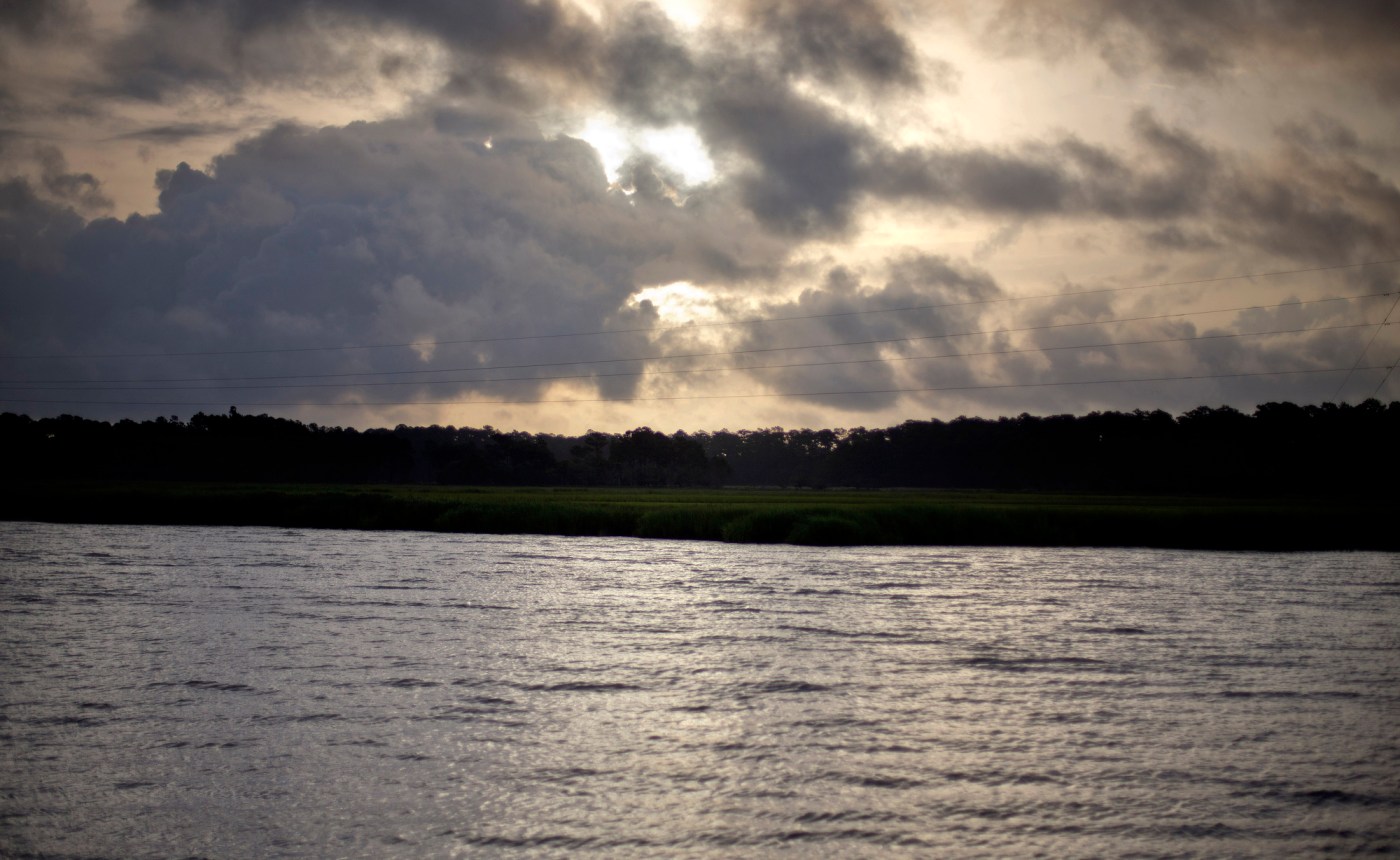
At least 7 dead in Georgia after ferry dock gangway collapses
By Russ Bynum | Associated Press
SAVANNAH, Ga. — Authorities said at least seven people were killed Saturday when part of a ferry dock collapsed on Georgia’s Sapelo Island, where crowds had gathered for a fall celebration by the island’s tiny Gullah-Geechee community of Black slave descendants.
Multiple people were taken to hospitals, and crews from the U.S. Coast Guard, the McIntosh County Fire Department, the Georgia Department of Natural Resources and others were searching the water, according to Natural Resources spokesperson Tyler Jones. The agency operates the dock and ferry boats that transport people between the island and the mainland.
Jones said a gangway at the dock collapsed, sending people plunging into the water.
“There have been seven fatalities confirmed,” Jones said. “There have been multiple people transported to area hospitals, and we are continuing to search the water for individuals.”
Helicopters and boats with side-scanning sonar were used in the search, according to a Department of Natural Resources statement. The cause of the collapse is being investigated.
Among the dead was a chaplain for the state agency, Jones said.
He said there were at least 20 people on the gangway when it collapsed. The gangway connected an outer dock where people board the ferry to another dock onshore.
Georgia Gov. Brian Kemp said he and his family were “heartbroken by today’s tragedy on Sapelo Island.”
“As state and local first responders continue to work this active scene, we ask that all Georgians join us in praying for those lost, for those still in harm’s way, and for their families,” Kemp said on the social platform X.
Sapelo Island is about 60 miles (97 kilometers) south of Savannah, reachable from the mainland by boat.
The deadly collapse happened as island residents, family members and tourists gathered for Cultural Day, an annual fall event spotlighting the island’s tiny community of Hogg Hummock, home to a few dozen Black residents. The community of dirt roads and modest homes was founded after the Civil War by former slaves from the cotton plantation of Thomas Spalding.
Hogg Hummock’s slave descendants are extremely close, having been “bonded by family, bonded by history and bonded by struggle,” said Roger Lotson, the only Black member of the McIntosh County Board of Commissioners. His district includes Sapelo Island.
“Everyone is family, and everyone knows each other,” Lotson said. “In any tragedy, especially like this, they are all one. They’re all united. They all feel the same pain and the same hurt.”
Related Articles
Militias ‘hunting FEMA’ in hurricane ravaged North Carolina
With Southern California’s 3 big wildfires just about out, an update on the havoc they’ve caused
Not exactly smooth sailing at the 52nd Albuquerque balloon fiesta after 4 incidents
Celeb hurricane relief: Taylor Swift donates $5 million, Tom Brady gives $100,000
After Hurricane Milton, a growing risk: Flooded electric cars going up in flames
Small communities descended from enslaved island populations in the South — known as Gullah, or Geechee in Georgia — are scattered along the coast from North Carolina to Florida. Scholars say their separation from the mainland caused residents to retain much of their African heritage, from their unique dialect to skills and crafts such as cast-net fishing and weaving baskets.
In 1996, Hogg Hummock, also known as Hog Hammock, was placed on the National Register of Historic Places, the official list of the United States’ treasured historic sites.
But the community’s population has been shrinking for decades, and some families have sold their land to outsiders who built vacation homes.
Tax increases and zoning changes by the local government in McIntosh County have been met by protests and lawsuits by Hogg Hummock residents and landowners. They have been battling for the past year to undo zoning changes approved by county commissioners in September 2023 that doubled the size of homes allowed in Hogg Hummock.
Residents say they fear larger homes will lead to tax increases that could force them to sell land their families have held for generations.


